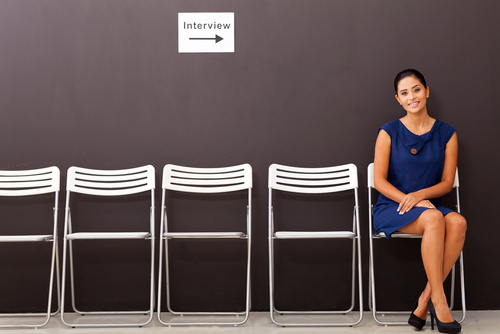For some people, interviews bring up a nervous apprehension, but for others they evoke pure terror.
Why do we feel nervous when going for an interview?
For one, they put us in a situation where we want to bring forward the best of ourselves to the situation. At the same time, interviews are ‘artificial situations’ where we need to face a lot of unknowns and think on our feet.
How can we make sure that we perform to our best at interviews? What do professional athletes and actors do before they stand on the track or stage?
They prepare and rehearse. There is not much difference with interviews. Preparation and rehearsal will give you the confidence and clarity of mind to perform at your best when the time comes.
The last time I was interviewed for the Future Leaders Award, I employed a few tips I have learned over the years from my experience of performing as well my business mentors which I would like to share with you.
When you want to present the best version of yourself, it is very important to find the right balance between authority and warmth. You want to be taken seriously and portray your professional skills in the most relevant light for the company interviewing you. At the same time, you want to connect with the people on the other side of the table in a relaxed and natural way so that you can have a great conversation between minds on the same wavelength.
I would also try to find out as much as possible about the person or people on a panel that will be interviewing me. I would try and find their LinkedIn profile, blog or website and understand the best I can about what they value, their background and interests.
On my panel of interviewees when I was questioned about leadership, I decided to find connection with technology as one of the panellist had a strong interest and background in software.
Find out as much as possible about their style, the voice and words they use, their attitude and level of enthusiasm, their preferences and dislikes. By doing this research, you are not trying to copy them in any way, but trying to find the parallels and touching points between their and your point of view.
Now let’s look at the content of your answers. Research has shown that interviews conducted by panels are far more impressed by the eloquent expression of vision over your past track record, however extensive it may be.
If you know you will be interview by a panel, you might want to imagine yourself getting the job and then describing the vision of what it would look like for you to contribute to the vision and mission of the company.
To drill a little deeper, you will need to anticipate what questions you might be asked on the day. The better you understand the company and how the job you are applying for helps the company fulfil its vision, the better you can fit your answers to the picture that is in the head of the interviewers.
Don’t forget that the interviewers are also under pressure to choose the right person for the team, department or unit. They have read your CV and it has sparked their interest. They have seen some match in you to what they are looking for. Now it’s your turn to answer the question in their head if you really are what the CV portrays.
Write as many questions you can think of. Those you would love to be asked and those you dread. Then start thinking of your answers to these questions in 3 parts – the key idea you would like to communicate; the example that demonstrates best your experience and finally the connection to the business’ benefit.
Probably the middle part where you relate to your own experiences is the most powerful in making your answer unique and memorable. Make the stories short and to the point but include as many fact and figures as possible to make the stories have substance and not just general observations. Make your stories real, with real places, people and events.
I keep a repository of stories that can be repurposed for different questions depending on where I put the emphasis when I retell them. You never know when you will be asked a question you don’t expect and you will need to think on your feet. Such stories are very handy in such moments.
And now that you have done as much preparation as possible, it is time to put some effort into practice. No performer starts a performance without having rehearsed first. Practice what you plan to say so you can find the most succinct way of expressing your ideas; practice how you sit and stand so that the posture you assume projects confidence and calmness; practice the projection of your voice so that every word can be clearly heard and understood. The more you re able to convert an interview into a conversation, the easier you will feel your ideas flowing from one to another without awkward jumps or silences.
And probably the most valuable tip I can give you today is to listen to the questions. Answering the wrong question because you rushed or assumed what the interviewer is asking leaves a bad impression of being too nervous or self-absorbed and not really paying attention to the conversation, which in most cases is not really the case.
It might seem strange, but when I am interviewed I imagine the whole experience as a date – be interested in the other party and know that they will be lucky to have you. Don’t try too hard to be liked and do not portray yourself to be something you are not. Sooner or later your true self will be discovered.
About the author
Dessy Ohanians is Managing Director of Certificate and Corporate Programmes at London School of Business and Finance.









